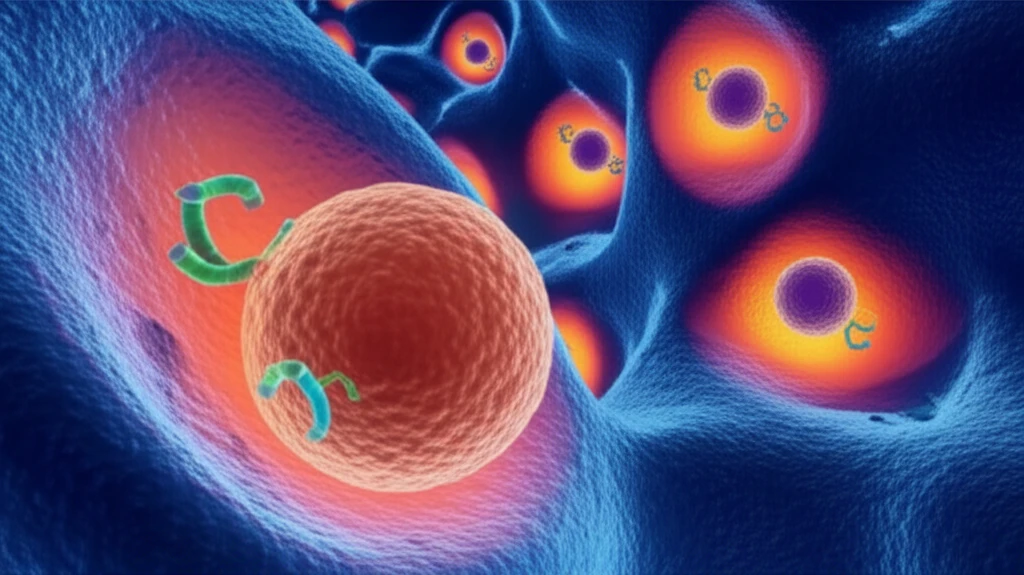
Unlock Targeted Drug Delivery: Serotonin-Tocopherol Lipids for Brain Health
"New research explores how modified lipids could revolutionize treatment for central nervous system disorders."
Delivering drugs effectively to the brain remains a significant challenge in treating neurological disorders. The blood-brain barrier, while crucial for protecting the brain, also hinders the passage of many therapeutic agents. This has spurred researchers to explore innovative methods for targeted drug delivery.
One promising approach involves using lipid-based carriers to transport drugs across the blood-brain barrier and directly to specific cells within the brain. Lipids, being naturally compatible with cell membranes, can facilitate the entry of drugs into cells. Furthermore, by modifying these lipids with targeting molecules, scientists aim to enhance the precision of drug delivery, ensuring that medications reach their intended targets while minimizing side effects on other tissues.
Recent research has focused on engineering lipids with serotonin, a neurotransmitter crucial for regulating mood, sleep, and appetite. Serotonin receptors are abundant in the central nervous system, making them attractive targets for treating conditions like depression, anxiety, and neurodegenerative diseases. This article delves into the exciting potential of serotonin-derived tocopherol lipids as a novel strategy for targeted drug delivery to the brain.
Serotonin-Tocopherol Lipids: A Novel Approach

Researchers have designed and synthesized novel lipids that combine tocopherol (Vitamin E) with serotonin. Tocopherol is a natural amphiphilic molecule, meaning it has both water-loving and fat-loving properties, which makes it suitable for penetrating cell membranes. By attaching serotonin to tocopherol, the scientists aimed to create a lipid that could specifically target cells expressing serotonin receptors.
- Lipid A: This lipid features a tocopheryl carbonate linked to serotonin via an amino group.
- Lipid B: This lipid uses a tocopheryl 2-hydroxypropyl ammonium linkage to connect tocopherol to serotonin via a hydroxyl group.
Lipid B: A Promising Candidate for Targeted Therapy
The study's findings revealed that Lipid B, when combined with DOPE as a co-lipid, demonstrated superior performance in facilitating cellular uptake and enhancing transfection—the process of introducing genetic material into cells. This suggests that the hydroxyl moiety in Lipid B plays a crucial role in its interaction with serotonin receptors.
Molecular docking studies further supported this, indicating that the enantiospecific significance of serotonin-conjugated tocopherol lipids, particularly those with the hydroxyl group, is vital for recognizing and binding to serotonin receptors. This precise interaction signifies a promising avenue for developing lipid-based therapies that can selectively target serotonin receptors within the central nervous system.
While further research is needed, these findings offer a strong foundation for exploring the potential of Lipid B and similar compounds in treating a range of neurological and psychiatric disorders. By refining these targeted drug delivery systems, scientists hope to develop more effective and personalized treatments for conditions that affect millions worldwide.
